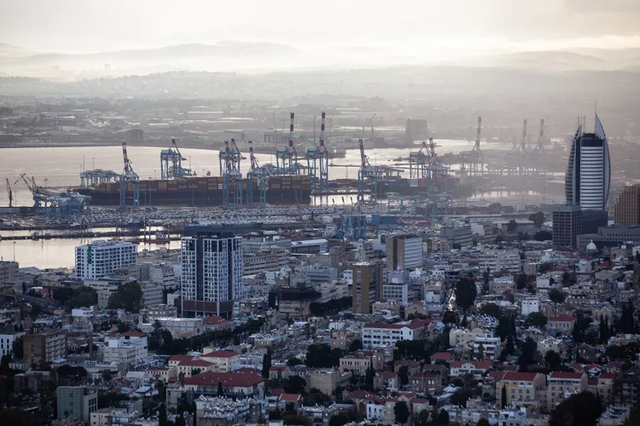
Diccon Hyatt
Dec. 21, 2023
KEY TAKEAWAYS
- Shipping companies are diverting their vessels around the Red Sea, where a series of missile and drone attacks by Houthi fighters in Yemen have threatened shipping.
- The disruption affects 12% of global trade, though the impact on the U.S. economy and consumers could be minimal.
- The disruption is the latest in a series of incidents highlighting the vulnerability of international supply chains.
If you’re waiting for a shipment on a cargo vessel passing through the Middle East, expect it to be a few weeks late—but don’t expect a big hit to the overall U.S. economy.
This week, according to news reports, multiple major shipping companies announced their vessels will stop sailing through the Red Sea and past Yemen, where the Houthi faction has attacked passing ships with drones and missiles in yet another layer of conflict in the Middle East.
That’s a stumbling block for global trade since anyone sailing between Europe and East Asia must either go through the Suez Canal to pass through the Red Sea or take the long way around Africa, adding thousands of miles and as much as two weeks to the journey.

Mati Milstein / NurPhoto via Getty Images
Although 12% of global trade passes through the Red Sea, according to the International Chamber of Shipping trade group, the disruption is likely to be a bigger problem for Europe and Asia than the U.S., said Mark Hopkins, an economist at Moody’s Analytics, in an email. Shoppers shouldn’t expect the price of the things they buy to rise much, if at all, because of the shipping chaos.
“Disruptions to shipping around the Arabian peninsula are unlikely to have any significant impact on the U.S. economy,” Hopkins said. “Transport costs are a small component in the final cost of most goods, and while some supply chain disruptions may arise impacting some industries as well as energy, these effects will be felt mostly in trade to and from Europe, rather than U.S. trade.”
Indeed, energy markets have felt an impact. The price of oil, as measured by WTI crude futures, was up 6% over the week Wednesday, after BP announced its tankers would detour around the area.
However, the impact on U.S. consumers at the gas pump—where motorists have enjoyed falling prices since September— should be “nearly indistinguishable from normal price fluctuations from week to week and month to month,” Hopkins said.
Still, the attacks on shipping pose a threat to the global economy, especially if they draw more countries into armed conflict in the Middle East, Hung Tran, a nonresident senior fellow at the Atlantic Council think tank, wrote in a commentary.
“The longer the war in Gaza lasts, the longer shipping disruptions caused by missile attacks in the Red Sea will go on,” Tran wrote. “The risk is that a widening conflict further destabilizes the regional economy, and in turn spills over into the global economy.”
The U.S. military is already involved in the fighting and could expand its role. This weekend, a U.S. warship in the area reported shooting down 14 drones launched from Yemen. Earlier this week, Defense Secretary Lloyd J. Austin announced the formation of a multinational operation to protect shipping in the area.
The threats to Suez shipping could also prompt businesses to rethink how much they rely on supplies and materials shipped from overseas—that is, if the disruptions from the COVID-19 pandemic in 2020, the Russian invasion of Ukraine, and other disasters hadn’t provided enough incentive.
“The closure of the Suez Canal in 2021, and the current threats to shipping in the Red Sea similarly illustrate risks to supply chains arising from choke points in global transportation routes,” Hopkins wrote. “Thus, the most immediate impact of attacks on Arabian shipping lanes may be to encourage more industries to monitor, and potentially diversify supply chains to reduce those risks."



